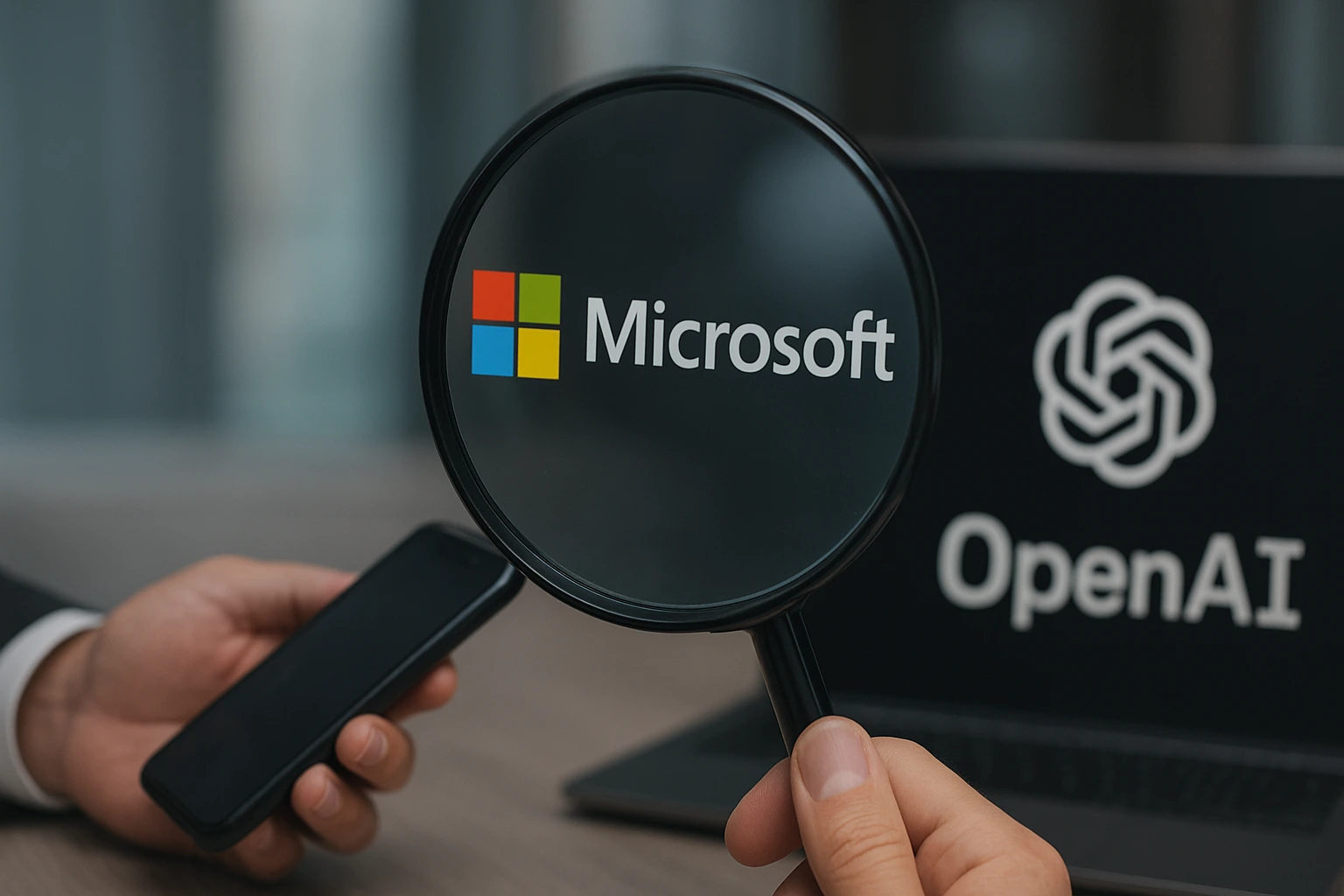Microsoft Corp. has taken a $135 billion stake in OpenAI, giving the tech giant roughly 27 percent ownership in the artificial intelligence company.
The move, formalized through a new agreement between the two firms, underscores Microsoft’s long term bet on artificial intelligence and signals a deepened alignment between two of the most influential players in the AI industry.
According to Microsoft, the stake represents its investment in OpenAI Group PBC a newly formed public benefit corporation and positions the company to remain a central force in the development of frontier AI models.
The deal also ensures Microsoft retains exclusive rights to OpenAI’s intellectual property and Azure cloud integration until the arrival of Artificial General Intelligence (AGI).
Microsoft and OpenAI began their partnership in 2019 when the software company invested $1 billion into OpenAI to accelerate AI research.
Over time, that collaboration has evolved into one of the most strategic alliances in the technology industry, driving innovations that power products like Copilot, ChatGPT, and Azure OpenAI Service.
The latest agreement follows OpenAI’s recapitalization and governance restructuring, which transitions the company into a public benefit corporation a move designed to balance profit motives with broader societal goals.
Microsoft’s 27 percent stake, adjusted from a prior 32.5 percent before OpenAI’s latest funding rounds, represents one of the largest single corporate investments in the history of the AI sector.
“This agreement builds on our foundation and strengthens our long term partnership with OpenAI,” Microsoft said in a statement. “It ensures both organizations can continue advancing innovation responsibly and independently.”
The new structure also reaffirms Microsoft’s role as OpenAI’s exclusive cloud provider through Azure, a relationship that has generated significant growth in demand for AI related computing power.
Industry experts say the deal reinforces Microsoft’s dominance in the AI ecosystem while reducing uncertainty about OpenAI’s governance and direction.
“Microsoft’s 27 percent stake is not just financial it’s strategic,” said Jessica Inskip, director of investor research at StockBrokers.com.
“By formalizing its relationship with OpenAI under this new structure, Microsoft effectively secures a front row seat in the race toward Artificial General Intelligence, while maintaining a degree of separation that limits regulatory risk.”
Inskip added that investors may see the move as a hedge against future volatility in the AI market. “Microsoft is locking in its access to cutting edge AI models without assuming full operational control, which gives it flexibility as the regulatory environment evolves.”
Other analysts note that the partnership could set a precedent for how Big Tech manages long term AI collaborations. “This is about building sustainable innovation pipelines,” said Arun Shah, a technology strategist at FutureScope Analytics.
“The partnership ensures OpenAI’s research ambitions stay funded while giving Microsoft the commercial edge in integrating AI across its product line.” Microsoft’s growing AI portfolio already accounts for a significant portion of its market capitalization.
According to Bloomberg data, AI driven products contributed an estimated $40 billion in revenue to Microsoft’s cloud and software services in fiscal year 2025, up 27 percent from the previous year.
In comparison, rivals like Google’s parent company Alphabet and Amazon Web Services are investing heavily in their own AI infrastructure.
Alphabet’s DeepMind continues to focus on foundational AI research, while Amazon is developing its Titan models to power enterprise tools. However, Microsoft’s early and sustained partnership with OpenAI gives it a competitive advantage.
Analysts at Morgan Stanley estimate that Microsoft’s access to OpenAI technology could generate an additional $70 billion in enterprise value over the next five years, largely driven by AI integration across Office 365, GitHub, and Dynamics platforms.
Reactions among investors and employees have been largely positive, reflecting growing confidence in Microsoft’s AI strategy.
“I see this as a validation of Microsoft’s vision,” said Rahul Mehta, a Seattle based retail investor who has held Microsoft shares since 2015. “They’re not just betting on AI they’re shaping how AI evolves.
That makes me more confident in holding for the long term.” At the same time, some employees within the AI community view the new structure as a safeguard for OpenAI’s mission.
“Turning OpenAI into a public benefit corporation means the company can focus on both innovation and ethics,” said a senior OpenAI researcher who requested anonymity. “It’s an acknowledgment that AI development must balance profitability with public responsibility.”
Not all voices are entirely optimistic. Critics warn that deep corporate influence in AI research could risk consolidating power in too few hands.
“This partnership gives Microsoft significant control over the direction of AI innovation,” said Dr. Lina Ortega, an AI policy scholar at Stanford University. “Regulators will need to ensure that such collaborations remain transparent and competitive.”
The agreement marks a new chapter in the rapidly evolving AI landscape, one where partnerships between corporations and research entities will define the trajectory of innovation.
With Microsoft now owning more than a quarter of OpenAI, industry watchers expect deeper integration between OpenAI’s models and Microsoft’s commercial platforms. Experts also anticipate increased scrutiny from policymakers as AI technologies become more powerful.
“The balance between open research and corporate interests will continue to be tested,” said Shah of FutureScope Analytics. Microsoft and OpenAI are likely to serve as a model or a warning for how those dynamics play out.
As global competition intensifies, the partnership could also influence how other tech giants structure their own AI collaborations, potentially leading to more public private hybrid models designed to manage both profit and public interest.
Microsoft’s $135 billion investment and 27 percent stake in OpenAI represent a defining moment in the tech industry’s pursuit of artificial intelligence leadership.
By securing long term access to OpenAI’s frontier research while preserving independent governance, the company has reinforced its dual role as both a business partner and a technological steward.
For investors, the move signals stability and strategic foresight a calculated step to ensure Microsoft remains at the forefront of the AI revolution shaping the future of work, productivity, and digital infrastructure.
